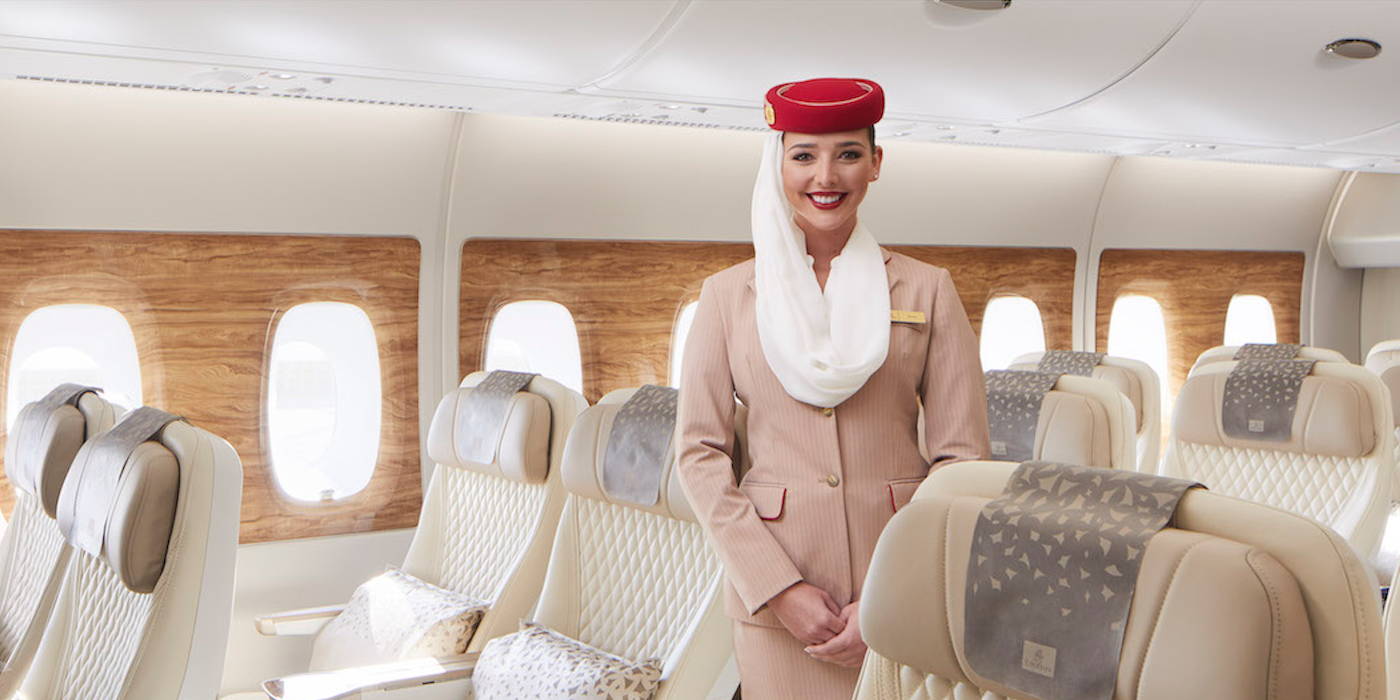Emirates has launched an initiative with the goal of becoming the world’s first Autism Certified Airline. The UAE-based carrier is inviting customers with autism and sensory sensitivities to experience its services and personalised hospitality, designed to make travel more accessible for all.
Emirates expects the inaugural certification to be formally awarded by the International Board of Credentialing and Continuing Education Standards (IBCCES) in the coming months, when more than 30,000 Emirates cabin crew and ground staff will have completed the initial training. Emirates also plans to roll out new standards and services that will improve the on-ground and inflight travel experience for customers on the autism spectrum, as well as their families and companions, which be announced later in the year.
International air travel can be a highly challenging experience for many people with autism, or even something to be avoided completely, due to the high level of sensory stimuli that can be involved. A survey on AutismTravel.com found that 78% of affected families are hesitant to travel or visit new locations, and that 94% of respondents would take more vacations if they had access to places where staff are autism-trained and certified. Emirates’ inclusive and accessible initiatives also supports Dubai’s ambition to become the most accessible destination in the world.
What is the Autism Certified Airline (ACA) designation?
Emirates has worked collaboratively with IBCCES, a leading organisation in autism and neurodiversity training and certification, to conduct an onsite review and comprehensive audit of its services.
As part of a wide-ranging research programme, IBCCES surveyed more than 14,000 people with a variety of disabilities, including people with autism, those with sensory sensitivities, and their families and caregivers.
The survey data was collated alongside numerous interviews, an International Air Transport Association (IATA) industry survey, and feedback from 1,200 industry professionals, to create standards for both passengers and airline staff. In addition to the feedback collated, IBCCES experts also conducted several Emirates flight audits on long-haul and short-haul routes.
The collation of detailed data included input from key stakeholders, such as the lived experiences of people with autism, global thought leaders, industry professionals and healthcare experts. The feedback has been combined to create new industry standards that accommodate passengers with autism and sensory sensitivities during air travel.
Using a data-driven approach, Emirates and IBCCES partnered to create a new blueprint for serving passengers with accessibility requirements, encompassing the entire journey – from ground services to inflight services, and Emirates is bringing these new standards into practice. The thorough certification process includes ensuring at least 80% of customer-facing staff complete the dedicated training, alongside a commitment to ongoing training and improvements.
Autism and sensory-awareness training for more than 30,000 staff
As part of the designation, Emirates’ ground staff and cabin crew will undertake a focused training programme on autism and sensory awareness, to equip them with the understanding and skills required to address the needs of travellers with autism and sensory sensitivities, along with their families.
The training educates Emirates’ teams on the spectrum of autism, the misconceptions and challenges faced, the myriad ways to assist customers dependent on their individual needs, and potential stimulus and triggers that staff should be aware of. The new training builds on the foundations established by the Emirates ‘Introduction to Autism and Hidden Disabilities’ training, which was completed by 23,000 staff in 2023.
Emirates’ new standards and services for customers with autism
Throughout 2025 and beyond, Emirates will be introducing new standards and services for customers with autism and sensory conditions, designed to enable more enjoyable and accessible travel. One such service is the introduction of ‘sensory guides’ – digital aids developed as part of the audit conducted by IBCCES in collaboration with Emirates that empower travellers to make informed decisions about the various environments encountered, and to plan what suits their needs and preferences.
The guides were created after conducting comprehensive facilities audits across Dubai locations and the inflight experience, measuring sensory inputs in public areas such as sound levels, lighting, and potential sights and smells. Another development expected in 2025 will be the introduction of neurodiverse sensory products for customers on Emirates flights – sensory ‘fidget toys’ or aids that can encourage focus, help to reduce self-stimulatory behaviour, and de-stress travellers.
Emirates, Dubai Airports and Dubai Tourism work together for accessible travel
In April 2024, Emirates achieved a Certified Autism Center Designation for all four of its Dubai Check In facilities, including its dedicated hub in Terminal 3 at Dubai International Airport (DXB). In December 2023, Dubai Airport became the first international airport to receive the Certified Autism Centre Designation.
Continuing to drive the accessible travel agenda forward, Emirates’ new training programme, as well as new standards and protocols to be implemented in stages in 2025 and beyond, will enable neurodiverse customers to fly more comfortably. These achievements align with the Department of Economy and Tourism’s (DET) vision of Dubai becoming the first Certified Autism Destination (CAD) in the Eastern Hemisphere.
By working closely together, Emirates, the Department of Economy and Tourism, Dubai Airports, the General Directorate of Residency and Foreign Affairs, Dubai Police and Dubai Customs, are making inroads into inclusive and accessible travel.

